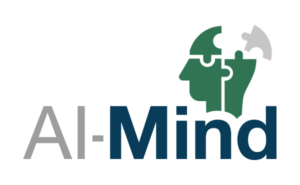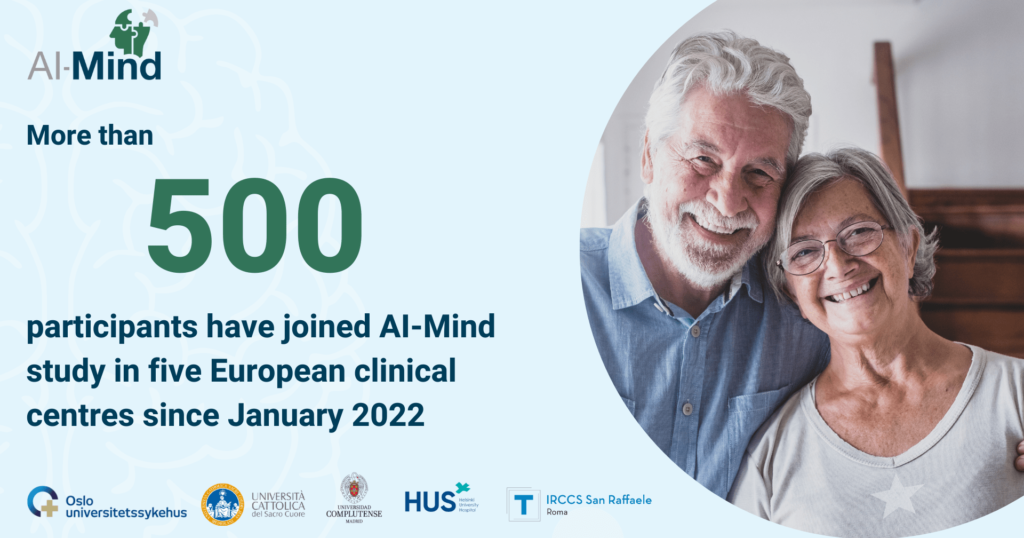AI-Mind passes the mark of 500 research participants for its clinical study
The AI-Mind consortium recently hit a significant milestone as its clinical study has already included more than half of the research participants needed to fulfil its goal. This clinical study is a key part of the AI-Mind project and will help develop and validate artificial intelligence-based tools to predict who is likely to develop dementia.
Recruitment started in January 2022 and is composed of people with mild cognitive impairment (MCI), aged between 60 and 80 years. Out of a total of 1,000 expected participants, more than 550 research participants have been enrolled so far in Finland, Italy, Norway and Spain. We are pleased that new research participants continue to be enrolled in the study every week. Participation in the study involves interviews with the researchers, procedures to measure electrical activity in the brain, cognitive tests and blood tests.
AI-Mind researchers will use artificial intelligence to enable clinicians to perform early population-based screening assessment of dementia risk for all people with MCI through the development of two digital tools: the AI-Mind Connector and the AI-Mind Predictor. The AI-Mind Connector will identify dysfunctional brain networks and the AI-Mind Predictor will assess dementia risk using data from the Connector, enriched with information collected through advanced cognitive tests, and genetic biomarkers. These two artificial intelligence-based digital tools will be integrated into a cloud-based diagnostic support platform.
If you are interested to learn more about the study, please visit the dedicated sections on the AI-Mind website, as well as watch the explanatory video developed to inform potential participants about the AI-Mind study procedures. We also encourage you to follow the AI-Mind social campaign dedicated to the AI-Mind clinical study on our social media accounts: Twitter, Facebook, or LinkedIn. The campaign will explain in depth all the details about the enrollment process, inclusion criteria as well as the screening methods used during each clinical visit, such as the electroencephalogram (EEG), magnetoencephalography (MEG), cognitive assessment with tablets (CANTAB) and analysis of blood samples.
The campaign is planned to be launched on 24th October. So, stay tuned not to miss any relevant updates!

